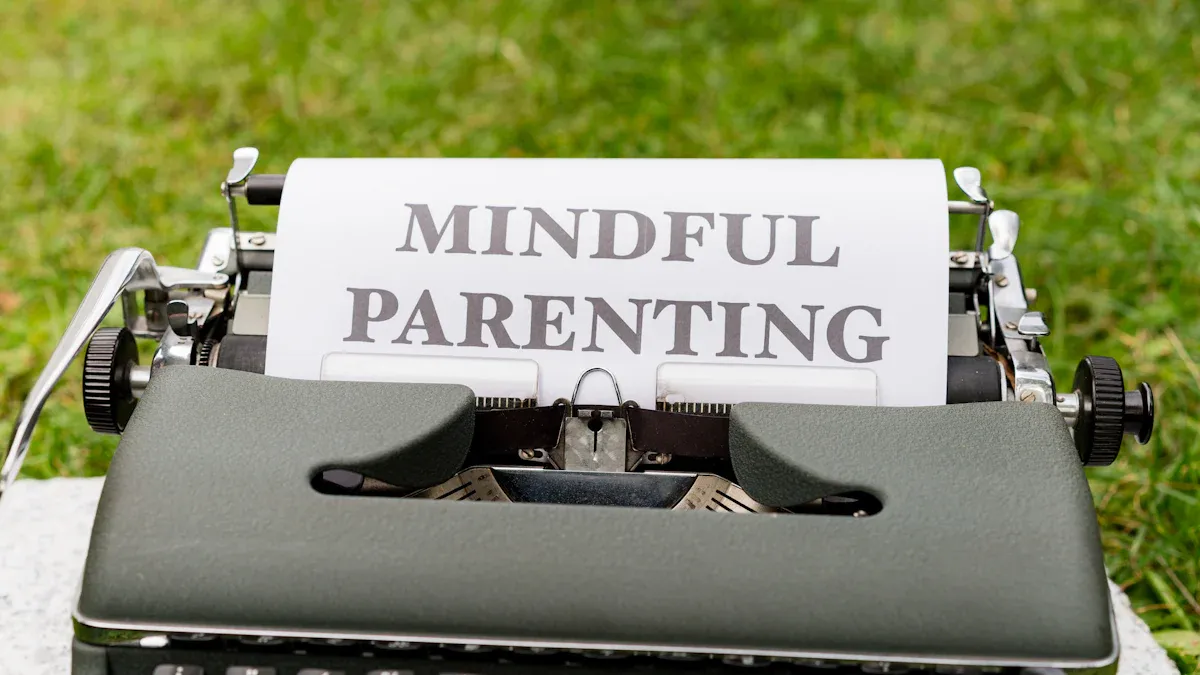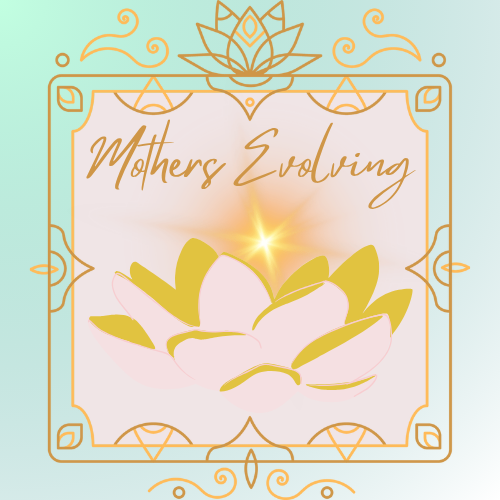How Happy For No Reason Enhances Your Journey as a Conscious Mom

If you want to feel happier and more present as a mom, you are not alone. Many moms look for ways to add more joy and meaning to their lives. Happy For No Reason gives you tools to find happiness inside yourself. It helps you learn about yourself and connect with your kids in real ways. Experts like Shefali Tsabary and Bryana Kappadakunnel say that when you care for your own well-being, you build better bonds with your kids:
Parents who learn about themselves often have closer, more honest relationships at home.
Letting go of old ideas can help you stop bad habits and connect from the heart.
Conscious Motherhood begins with your own growth inside. Joining a support group for moms is a great resource for moms to practice this.
Key Takeaways
Inner happiness is very important for moms. It helps you feel good inside, even when things are hard. This positive feeling helps you get along better with your kids.
Self-reflection is very important. Take time to think about your feelings and your child's feelings. Doing this helps you build trust and makes your bond stronger.
Practice internal validation. Trust your own feelings and choices. You do not need others to say you are right. This confidence helps your child learn to do the same.
Mindfulness can change how you parent. Pay attention to what is happening right now. This helps you stay calm and meet your child's needs. This way, your home feels more loving.
Community support is helpful. Join groups or talk with other moms for friendship and help. Sharing your stories can help you feel less alone.
Happy For No Reason and Conscious Motherhood

Inner Happiness Defined
When you hear the word happiness, you might think of laughing or having fun. But inner happiness is more than that. It means you feel good inside, even if things are hard. In conscious motherhood, you learn to notice your own feelings and what you need. This helps you be there for your kids in a true way.
Conscious parenting means you look at your past and your feelings. You try to understand your younger self. This helps you get closer to your kids.
Positive psychology says knowing yourself, accepting your feelings, and being gentle with yourself are important for inner happiness.
When you make peace with your younger self, you feel less worried. You can be more honest with your child.
Inner happiness comes from inside and outside things. Some things come from how you think or what you believe. Other things come from your friends, your job, or where you live.
Inside things: your thoughts, your beliefs, your personality
Outside things: your family, your friends, your work, your daily life
You can grow inner happiness by noticing both.
Why It Matters for Moms
Your happiness affects more than just you. It changes your whole family. Studies show that when you are happy, your family feels safer. Your kids watch you and learn from you.
Evidence Description | Findings |
|---|---|
Happy mothers are more likely to keep strong relationships with their partners over time. | This helps families stay together, as happy moms are less likely to break up. |
Happy mothers have teens with fewer mental health problems. | This shows a clear link to child success, since mental health is very important. |
Research Study | Key Insights |
|---|---|
Good feelings between moms and kids are connected. | Kids copy their moms’ actions, which helps them feel better too. |
Chapter 4 of the World Happiness Report 2025 says, "For most people in the world, family is a source of joy and support." When you care for your family and spend time together, you make your bonds stronger. Simple things like playing games or going out on weekends can make your family happier.
Conscious motherhood is a path. You grow by learning about yourself and healing old hurts. Research shows that being kind to yourself and staying mindful helps you on hard days. When you are gentle with yourself, you notice your feelings more. This helps you heal and be stronger for your kids.
Moms who practice conscious motherhood often feel better inside. They find help from friends or groups. When someone listens to you without judging, you feel better. You know you are not alone.
Support from friends during pregnancy and early motherhood helps moms feel happier.
Having friends lowers the chance of feeling sad or worried.
Sharing your feelings in a safe place brings comfort and helps you heal.
Conscious motherhood is not about being perfect. It is about growing, healing, and making a happy home from the inside out.
Principles for Conscious Parenting
Self-Reflection
Self-reflection is very important in conscious parenting. When you stop and think, you learn about your feelings. You also start to understand your child’s feelings. This helps you see that you and your child think differently. You both have your own ideas. Sometimes, your child does things that upset or confuse you. Instead of reacting fast, you can pause and ask, “What is really happening?” This small step can change how you and your child get along.
Tip: Try writing in a journal. Write about times you felt proud or had a hard time as a mom. After a while, you will see patterns and learn more about yourself.
Self-reflection helps you deal with stress better. You feel more sure about your choices as a parent. When you reflect, you can calm your feelings. You can also help your child do this. This builds trust and makes your bond stronger.
Here are some main ideas from experts:
Parenting is about your relationship, not just rules.
Hard times help you and your child grow.
Being there matters more than being perfect.
Internal Validation
Internal validation means you trust your own feelings and choices. You do not need others to say you are doing well. In conscious parenting, this helps you stop worrying about what others think. You do not have to compare yourself to other moms.
You can practice internal validation by:
Noticing your wins, even small ones.
Reminding yourself that mistakes help you learn.
Thinking about your values, not just praise from others.
Note: Being thankful can help you feel better about yourself. Try writing down three things you did well each day, even if they are small.
When you trust yourself, you show your child how to be confident. This helps your child trust their own feelings and choices too.
Managing Thoughts
Managing your thoughts is a strong tool in conscious parenting. Sometimes, your mind fills with worries or negative ideas. These thoughts can make you react quickly. Instead, you can pause and notice your thoughts. You do not have to let them control you.
Mindfulness can help. When you focus on now, you can stay calm. You can respond instead of reacting. Breathing exercises or short meditations can help a lot. Mindfulness lowers stress and helps you stay steady during hard times.
Here are some things you can try:
Enjoy the good times. Focus on happy moments with your child and let yourself feel joy.
Meditate for a few minutes each day.
Keep a gratitude journal. Write about things, big or small, that make you thankful.
Remember: Cognitive empathy helps you see things from your child’s view. This lowers stress and helps you make better choices.
Many moms face challenges on this journey. You might feel pulled in many directions. You may worry about fitting in with other parents. Sometimes, being in a group feels hard. You may also struggle with your own mental health or confidence. These problems are normal. Conscious parenting is not about being perfect. It is about growing, learning, and making a strong, loving bond with your child.
Challenge Type | Description |
|---|---|
Psychological Factors | Mental health, readiness to change, and beliefs about parenting. |
Situational Factors | Balancing work, childcare, and daily demands. |
Group Therapy Experiences | Feeling out of place or lacking confidence in group settings. |
Practitioner Characteristics | Finding the right support and understanding for your family. |
When you use self-reflection, internal validation, and mindful thinking, you start to break old habits. You react less and are more present. This helps you make a happier home and a better bond with your child.
Daily Parenting Strategies
Mindful Responses
You face many moments each day where your child needs your attention. Mindful responses help you stay calm and present. When you focus on the moment, you notice your feelings and your child’s needs. This helps you respond with care instead of reacting quickly.
Mindful parenting helps you manage your emotions and stay aware of what is happening right now.
Self-compassion lowers your stress and helps you parent with more patience.
Programs like Mindful with Your Baby Training (MYBT) show that mindfulness can boost your well-being and reduce stress.
Try this: When your child asks for help or shares a story, pause and take a deep breath. Listen closely before you answer. This small step can make your child feel heard and valued.
Here’s a real-life example:
Sarah and Mark listen to their daughter Emily each morning as she talks about her dreams. They slow down and give her their full attention. This simple act helps Emily feel important and builds her self-esteem.
Modeling Authenticity
Children learn by watching you. When you show your true feelings and act with honesty, your child learns to do the same. Moms who use warmth and open communication feel more authentic and help their children grow emotionally. If you try to hide your feelings or act in ways that do not match your values, your child may feel confused.
You can say, “I feel tired today, but I’m happy to spend time with you.” This teaches your child that it’s okay to share real feelings.
Nurturing Emotional Intelligence
Helping your child understand emotions is a gift for life. Kids with strong emotional intelligence do better in school, make friends more easily, and handle stress well.
What Helps | Why It Matters |
|---|---|
Talking about feelings | Builds trust and understanding |
Naming emotions | Helps kids manage big feelings |
Practicing empathy | Strengthens relationships |
Emotional intelligence helps your child handle tough situations and build strong bonds.
Early emotional awareness sets the stage for future success.
For more tips and support, check out blog.mothersevolving.com and mothersevolving.com. You’ll find more ideas to help you on your conscious parenting journey.
Real-Life Stories

Conscious Moms' Experiences
You might wonder how other moms use conscious parenting in real life. Many moms share stories about moments when they chose to pause and connect instead of reacting. Here are a few examples:
One mom took away her child’s tablet after a tantrum. Instead of yelling, she sat down and talked about feelings. Her child learned to name emotions and calm down.
Another mom felt uneasy about a sleepover when the friend’s parents were not home. She explained her feelings to her child. They talked openly and found a solution that worked for both.
Moms often say that conscious parenting helps them understand the ups and downs of motherhood. You may notice yourself growing stronger and building better relationships. Many moms also learn the value of asking for help when they need it.
“I feel capable, I feel proud, I feel more equipped.”
You are not alone on this journey. Moms who share their stories often feel less isolated and more confident. When you talk with other moms, you realize that everyone faces challenges. Sharing your story can help you and others feel supported.
You feel more connected to your family and friends.
You see that other moms have similar struggles.
Sharing with peers helps you feel stronger and more in control.
Positive Changes
When you practice conscious parenting, you start to see real changes at home. Moms who use mindful parenting notice big improvements in how they handle daily life. You may find that you respond with more patience and kindness.
Moms who practice mindful parenting often see better relationships with their kids.
You may notice more open and caring talks with your child.
Families become more accepting and compassionate with each other.
These changes help you raise conscious children who feel safe and loved. You build a home where everyone can grow and support each other.
Resources for Conscious Motherhood
Books and Courses
If you want to learn about conscious parenting, books and courses can help. They give you new ideas and help you grow as a mom. Many experts have written guides to make parenting easier and happier. Here are some good choices you can look at:
The Conscious Parent
The Whole-Brain Child
Simplicity Parenting
Raising Good Humans
The Attachment Parenting Book
Nonviolent Communication
The Self-Driven Child
Balanced and Barefoot
Unconditional Parenting
The Explosive Child
Breaking Free of Childhood Anxiety and OCD
Differently Wired
Parenting for Social Change
You can also read these books to learn even more:
The Gardener and The Carpenter
The Philosophical Baby
Rest, Play, Grow
Child Development: Early Stages Through Age 12
How to Raise an Adult
How to Raise Successful People
The Awakened Family
Hold On to Your Kids
No Drama Discipline
The Continuum Concept
Good Inside
These books and courses help you connect with your kids. They also bring more happiness to your family.
Community Support
Getting help from your community can really help you. You do not have to do everything by yourself. Many moms join groups or programs for support and friendship. Here are some resources you can try:
Resource | Description | Effectiveness |
|---|---|---|
Home visits and education for at-risk pregnant teens | No high-rated studies, but offers social support |
Community-based perinatal mental health peer support can help you feel better, even if things are still hard.
Holistic group-based parenting programs help moms with postpartum depression. These programs can make you feel more confident and closer to your baby.
You can also visit blog.mothersevolving.com and mothersevolving.com for tips, stories, and support from other moms.
The World Happiness Report 2025 says that caring and sharing make families happier. Eating together and spending time as a family helps you feel close. The report also talks about how family size and strong bonds affect happiness at home.
If you want to know more about happiness and wellbeing, the World Happiness Report 2025 is a great place to start. It gives you ideas to make your family life happier and more connected.
Inner happiness shapes your journey as a conscious mom. When you nurture your own joy, you help your child grow strong and confident. Research shows that happy moms raise kids who do better in school and feel more secure. Small steps—like sharing meals, caring for yourself, and connecting with others—make a big difference. Keep learning and growing. For more support, check out blog.mothersevolving.com, mothersevolving.com, or explore the World Happiness Report 2025 for fresh ideas and inspiration.
FAQ
What does “Happy For No Reason” mean for moms?
It means you find happiness inside yourself, not just from outside things. You learn to feel good even when life gets tough. This helps you stay calm and present with your kids.
How can I start practicing conscious motherhood?
Start small. Notice your feelings each day. Take a few deep breaths when you feel stressed. Try writing in a journal. You can also join a support group or read helpful books.
Will these ideas help if I feel overwhelmed?
Yes! Many moms feel overwhelmed sometimes. Using mindful breathing, talking with friends, or reading tips from trusted sources can help you feel better. You are not alone on this journey.
Where can I find more support and resources?
You can visit blog.mothersevolving.com, mothersevolving.com, or check out the World Happiness Report 2025. These places offer tips, stories, and community support for conscious moms.
See Also
The Impact of Self-Love on Your Journey as a Mother
Incorporating Conscious Parenting Into Your Everyday Life
Achieving Calm Through Mindful Parenting for Neurodiverse Kids

Continue Your Growth Journey

